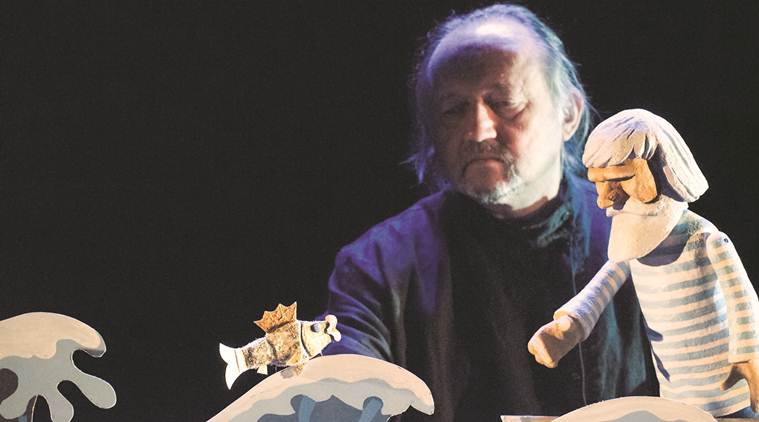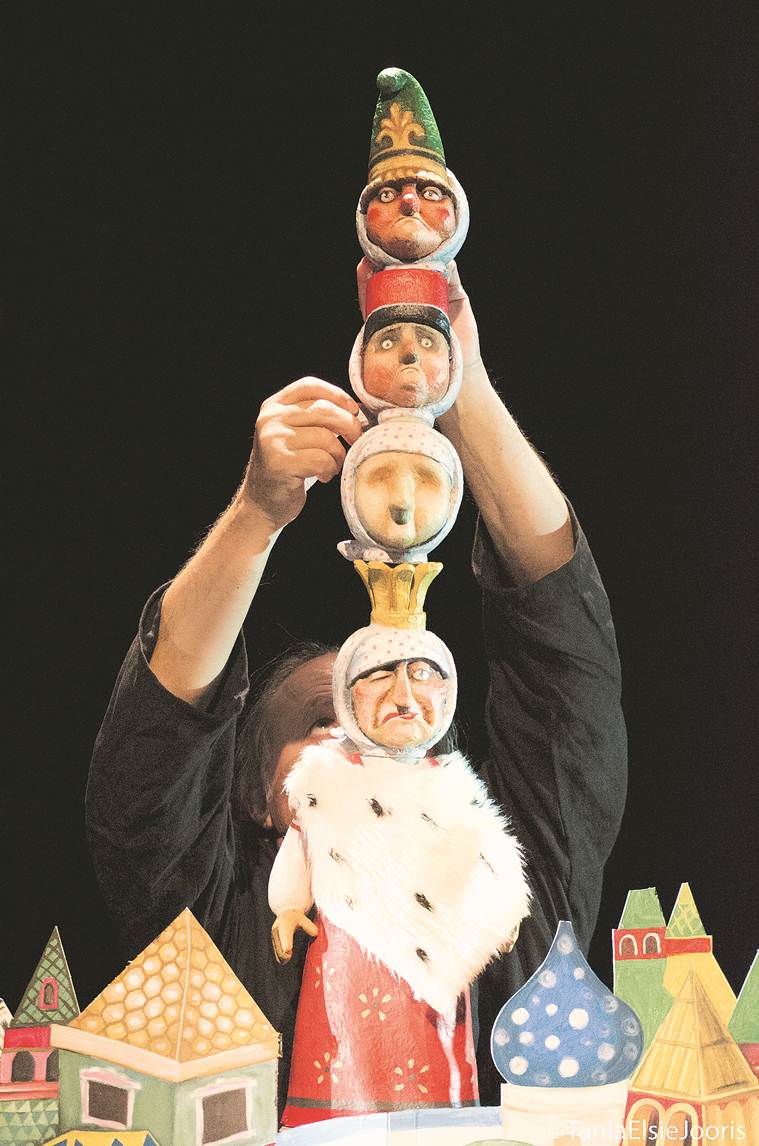 Ronny Aelbrecht
Ronny Aelbrecht
One day, an old fisherman pulls out a golden fish, which pleads for its life, promising any wish in return. Scared to see a speaking fish, he lets it go. His angry wife instructs him to ask the fish for varied things — one thing after another — until she demands to be made the ‘ruler of the sea’ and to subjugate the golden fish, which cures her greed by putting everything back to its older state.
Belgian puppet theatre group Figurentheater Vlinders & Co adapted this 1833 Alexander Pushkin’s classic tale into The Fisherman and the Golden Fish and brought it to the 18th edition of the Ishara International Puppet Theatre Festival (February 14-22) last weekend at Delhi’s India Habitat Centre. The set and design, like a pop-up fairy-tale book, has been actor Ronny Aelbrecht’s forte, says Dadi Pudumjee, founder of the Ishara Puppet Theatre Trust.
 Ronny Aelbrecht during performance
Ronny Aelbrecht during performance
One day, a professional saw “real talent” in the “low level” performance of Aelbrecht and his friend, who used to play with puppets for “fun”, and suggested they join the Puppet Academy acting school. Aelbrecht started studying there in 1983, became a puppeteer actor in 1990, and started independent theatre in two years. The award-winning actor — the only non-Russian bit in the play — was part of the first (and the only) foreign group to come to Ishara festival when it started 18 years ago. Excerpts:
Why Pushkin’s poem?
Pushkin’s work is a world heritage. This is a fantastic story, and, for years, I wanted to work with director Evgeny Ibragimov. Since he’s Russian, the choice was easy.
How do you fuse table-top puppetry with stop-motion puppets?
It’s a challenge. The control and manipulation look easier than they are. You have to carefully watch your subtle motor-skill movements, which, since I’m solo, is often with two puppets, or three heads at once, therefore, it is even more difficult.
Tell us about Belgian puppet theatre.
Since we have no real country — we’re a cocktail formed from parts of other countries — and no historical cultural background, there is no real ‘Belgian’ puppetry. Of course, we have taken over some heritage, for example Jan Klaassen (Dutch version of Punch and Judy), iron-stick puppets (from the Sicilians). There are many puppet theatres, amateurs and professionals, a lot of them with their own style.
Does art bridge gaps between nations?
I’m an artiste with friends all over. I’m not interested in colour, race, religion. The only border I know is language. But children around the world are the same. It is the environment, the education by the adults which create gaps/hostility between them.
With greater TV/internet access, are children less drawn to live art?
It is harder but ‘live’ performances will survive. They have an irreplaceable ‘magical element’. Since movies started, there has always been a concurrence. Now there is even more, but still live art will stand. The economic crises is another problem; Western (read capitalist) governments aren’t willing to invest in culture or art, especially if it’s for children, since it yields no ‘financial’ benefits. Egocentric systems hardly understand or care that children are our planet’s only future. We can only work hard and hope the tide will turn one day.